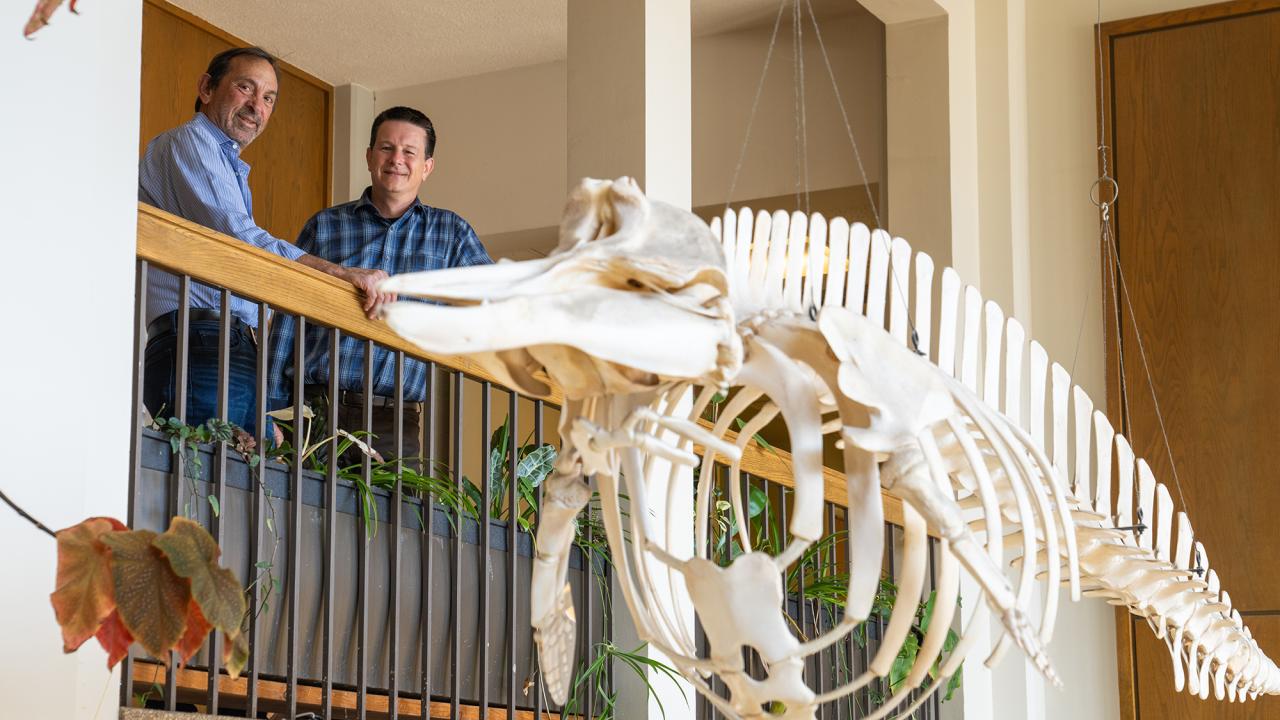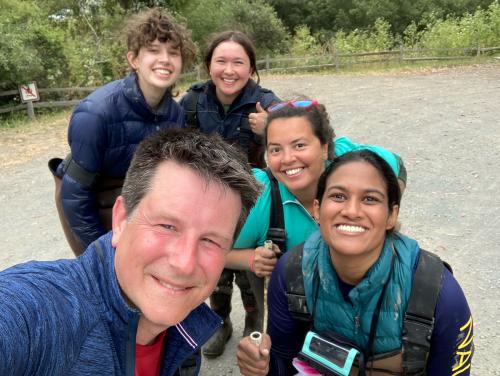
Jay Stachowicz named Interim Director of Coastal and Marine Sciences Institute, Succeeds Founding Director Rick Grosberg
Interdisciplinary research and teaching institute draws faculty and students from across UC Davis
Jay Stachowicz, a professor in the Department of Evolution and Ecology, has been named the interim director of the Coastal and Marine Sciences Institute (CMSI). Stachowicz succeeds the institute’s founding director, Rick Grosberg, a distinguished professor emeritus of evolution and ecology who retired from the university earlier this year.
Longtime colleagues, Stachowicz, who studies the biodiversity and resilience of coastal ecosystems, and Grosberg, a leading researcher on the ways marine invertebrates recognize and interact with one another, share a common passion for fostering community and collaboration in marine sciences.
Embodiment of Interdisciplinary Excellence
CMSI, which is administered by the UC Davis Office of Research, is, in many ways, the embodiment of what a university research institute can be. Launched in 2013, the institute’s community includes representatives from more than twenty academic departments, as well as all four undergraduate colleges and even the UC Davis School of Law. Together, CMSI faculty study almost every aspect of marine science and policy. The institute is housed in Storer Hall on the UC Davis campus.

In addition to supporting novel research collaborations and engagement with diverse stakeholders, CMSI serves as a hub of undergraduate and graduate experiential learning, teaching and research. “We want each of our students to be part of the broader community of marine science researchers across campus,” says Grosberg.
Emblematic of this philosophy, and of the impact CMSI has had on the academic environment, was the creation of the marine and coastal sciences undergraduate major. Launching the major was a hugely collaborative feat that involved many of the institute’s faculty, and its origins lay in the realization of CMSI itself. “One helped the other,” says Grosberg. “They happened in parallel.” It is fitting, then, that the major—the first on campus to be administered by three of the four undergraduate colleges—is as interdisciplinary as the institute that helped it come into being.
Another defining accomplishment of the institute’s first decade, says Grosberg, was the establishment of “Sustainable Oceans: From Policy to Science to Decisions,” a National Science Foundation Research Traineeship Program, or NRT, in 2017. With its novel approach to unifying social and natural sciences and humanities, and its commitment to engaging with and addressing the needs of diverse cultures and communities, the program engaged over 30 graduate students in five cohorts that studied major problems in the sustainability of coastal systems. “Our goal was to provide immersive and collaborative research projects that would also help each trainee become a future mentor,” says Grosberg. The program ended earlier this year.
Leadership and Service
“CMSI is already a great example of collaborative, interdisciplinary work,” Stachowicz says. “There’s a strong foundation there. I am excited to build on these efforts and keep expanding the marine science footprint at UC Davis.”

Having served as the director of the Center for Population Biology, as well as the chair of the Department of Evolution and Ecology, Stachowicz is not new to leadership roles. “The vision for the institute’s next 10 years should come from its members. That’s my role, to be a conduit for the community,” says Stachowicz.
The institute also encompasses the Bodega Marine Lab (BML), an epicenter of marine-related research on the California coast. Originally established by UC Berkeley, BML became part of UC Davis in 1983, and has served generations of researchers since. The creation of CMSI helped expand the impact of the research taking place at BML by providing a university-wide, on-campus home for marine sciences. With robust teaching and research activities, as well as BML’s dedicated outreach efforts, which include special exhibits and event spaces, the institute’s first ten years have laid the groundwork for continued leadership in the interdisciplinary study of coastal and marine organisms and ecosystems.
Despite his emeritus status, Grosberg plans to remain engaged with campus, and will be co-chairing the provost’s Increasing Our Research Excellence Committee, which aims to help UC Davis further refine and enhance its teaching and research missions. “It's going to be a busy retirement,” he says.
Stachowicz, who stepped into the interim director role on October 1, credits Grosberg with creating a solid foundation for the institute. “Rick built something for all of UC Davis,” says Stachowicz. “He created something that's bigger than a marine lab, or a major, or a group of faculty who share a grant for a few years. He gave a voice to marine science at UC Davis."
